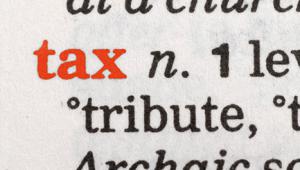Such ‘go-betweens’ have been exposed as key players in the international tax avoidance arena by revelations such as the Panama Papers, which showed how some of these professionals will help their clients plan their affairs with the specific aim of avoiding or evading tax.
If implemented, the EU proposals would force such schemes out into the open by placing an obligation on either the intermediary that created the scheme or the individual or company that receives their advice.
Pierre Moscovici, European commissioner for economic and financial affairs, taxation and customs, said this will “provide more certainty for those intermediaries who respect the spirit and the letter of our laws and make life very difficult for those that do not”.
A centralised database would allow member states to automatically share the information they receive about tax planning schemes, providing authorities with early warnings on new risks and enabling them to take measures to block harmful new arrangements.
Member states will be obliged to implement strict penalties for those that fail to report.
While the rules will cover all intermediaries and member states, they will be targeted at harmful schemes only by focusing on a number of “hallmarks” that are common to the majority of aggressive tax avoidance schemes.
These include the use of losses to avoid tax liability, the use of special beneficial tax regimes or arrangements through countries that do not meet international good governance standards.
Intermediaries or their clients will be given five days to report the details of any scheme containing one of these hallmarks to the intermediary’s home tax authority, or that of the client if the intermediary is based outside of the EU.
If the intermediary is not based in the bloc, the duty to report will fall on the client – the individual or company – receiving their advice. This is also the case if the scheme if developed by in-house tax consultants or lawyers, or if the intermediary is bound by professional privilege or secrecy rules.
Olivier Boutellis-Taft, chief executive of Accountancy Europe, said that while the commission’s proposals would increase transparency and are right to cover anyone involved in providing tax services, placing the burden of disclosure largely on tax advisers is not practical.
“It would be more logical and more efficient that the taxpayer has the obligation to disclose as he may be the only one to have all the necessary information,” he continued. “The tax adviser has the obligation to advise, maybe including on this disclosure, but the adviser might have a hard time reporting something the client didn’t tell him.
“All players in the tax system (tax authorities, lawmakers, tax payers, intermediaries) need to take responsibility for improving it: they should work together, not against each other.”
Tax campaigners however said the proposals, which still need to pass through the European Parliament and the European Council, do not go far enough.
Tove Maria Ryding, tax coordinator at Eurodad, said the commission had ignored the public’s “right to know what’s going on”.
“If the public is left in the dark, the tax administrators will not be able to win the fight against big multinational corporations, who often have governments on their side and benefit from loopholes in the legislation,” she said.
“We’re also missing concrete proposals on the consequences for intermediaries who support large-scale tax dodging. For example, it doesn’t make sense that big accounting firms who have helped multinational corporations dodge billions of euros in tax payments, can at the same time get paid large amounts of tax payers’ money doing consultancy work for governments.”
The commission said that it expects the new reporting requirements, if adopted, to enter into force on 1 January 2019, with EU member states obliged to exchange information every three months after that.














